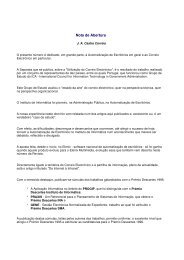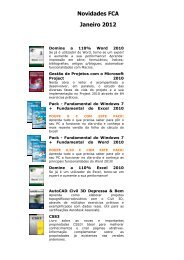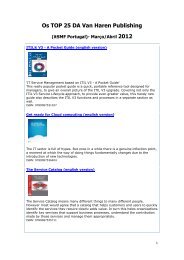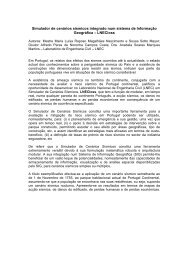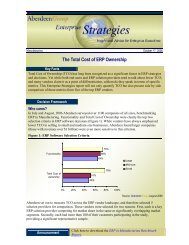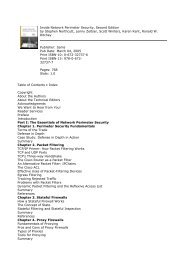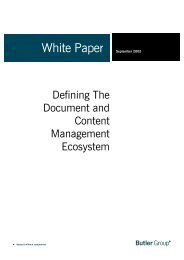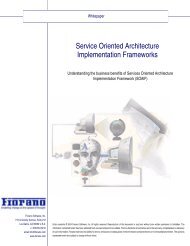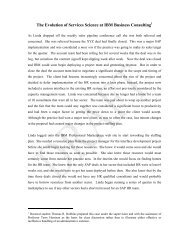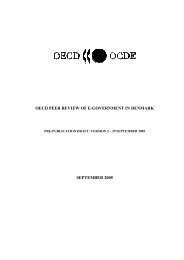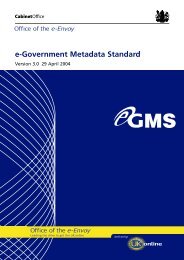Australian Government Information Interoperability Framework (pdf
Australian Government Information Interoperability Framework (pdf
Australian Government Information Interoperability Framework (pdf
You also want an ePaper? Increase the reach of your titles
YUMPU automatically turns print PDFs into web optimized ePapers that Google loves.
A P P E N D I X A T H E F R A M E W O R KAppendix A<strong>Information</strong> <strong>Interoperability</strong> checklistAdopting the frameworkIndividual agencies should undertake the following activities to build capability:1. Assess agency information-management capability.2. Assign responsibility for information management and <strong>Information</strong> <strong>Interoperability</strong>to senior executives.3. Collaborate with agencies in the same portfolio/sector to develop governancearrangements, plans, standards, and practices for improving information exchangeacross the sector.4. Comply with agreed standards used widely across government.5. Implement regular formal reporting to senior managers/Ministers on progresstowards achieving <strong>Information</strong> <strong>Interoperability</strong>.6. Adopt the use of tools to facilitate effective information sharing across agencies.7. Providing specific training to officers at all levelsEnabling <strong>Information</strong> <strong>Interoperability</strong> as part of the information lifecycleTo address interoperability through a life-cycle approach agencies should:1. Identify the potential uses of new information collections, particularly any potentialfor use by other agencies and citizens and any long-term storage requirements, andaddress these uses in the planning and designing stage.2. Adopt standard data item concepts and definitions so that information can beeasily compared.3. Consider any potential barriers to making the information available to others, such asongoing third-party consent issues.Prior to creating new information holdings agencies should:1. Undertake a review to determine if the information required can be sourced from anexisting collection.In collecting information agencies should:1. Inform the providers of the information of the purpose and intended uses of thecollection and seek appropriate consents.2. Monitor and manage the quality of information as it is collected to ensure that it isaccurate and adequately meets the intended purpose.To better support users, agencies should:1. Organise and store information in a manner where common requests for access canbe serviced efficiently.2. Organise and store appropriate metadata, so that information can be described tousers easily and efficiently.38<strong>Information</strong> <strong>Interoperability</strong> <strong>Framework</strong> Sharing information across boundaries



